hello.
there are still moments in modern life that feel unironically ancient. the papal conclave is one of them. it is a ritual that has remained largely unchanged for centuries: a closed-door gathering of cardinals, casting handwritten ballots beneath michelangelo’s ceiling, as the rest of the world stands outside, staring at a chimney. it should feel obsolete. and yet, it doesn’t. in a culture defined by immediacy, transparency, and total access, the conclave still manages to hold its silence. it is secretive by design. theatrical without apology. sacred in a way that feels almost defiant.
that is what makes it feel so compelling. we live in a culture where everything is visible, recorded, and explained. we are drowning in content. but the conclave resists all of that. there are no cameras, no live feeds, no behind-the-scenes interviews. the cardinals are cut off completely. they vote on paper and burn their decisions. the smoke becomes the message and somehow, people still tune in, not to hear anything, but to wait and watch.
technically, the conclave is a voting process. a group of men, locked in the sistine chapel, casting votes until one of them reaches the required two-thirds majority. but nothing about it feels procedural. the word conclave comes from the latin cum clave, meaning with a key, because the chapel is physically locked from the outside. it is a system built to resist disruption.
and that is the most disorienting part. the symbolism is heavy and intentional: the stove, the ballots, the robes, the ritual silence, the black or white smoke. it is liturgical theater, yes, but theater in the oldest, truest sense of the word, a way of staging the invisible. belief. authority. consensus. transcendence. and even with everything the institution has done wrong, the fact that this ritual still exists in its original form is startling. not because it is good, but because it refuses to be made light. it insists on being taken seriously. and that, more than anything, is what holds power.
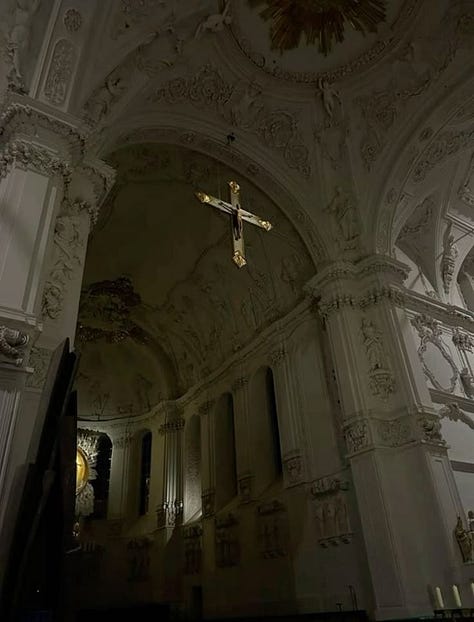
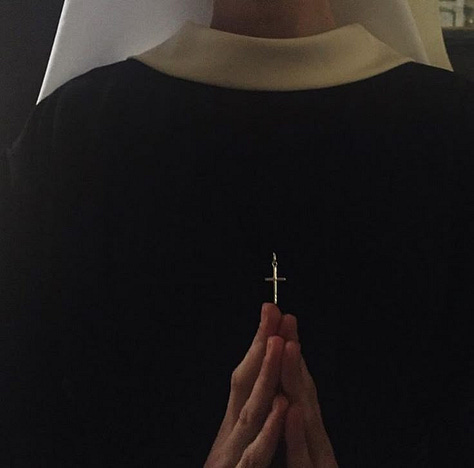

i was raised inside the same system where everything is treated with meaning as foundational. it wasn’t optional or abstract. it was the framework through which everything else was filtered and understood. private religious education was not just about academics with a moral edge; it was an immersive worldview. we had daily chapel services. theology woven into literature classes. bible memory verses on every quiz. faith wasn’t something you performed once a week. it was totalizing and it saturated the calendar, the classroom, the moral language we used to interpret our lives. you didn’t just learn how to write essays or solve equations, you learned how to see. what counted, what didn’t, what was sacred, what wasn’t.
and while i’ve stepped away from that framework in a formal sense, its scaffolding still lives in me. i still think in terms of structure, consequence, covenant. i still experience silence as something charged. i still find myself craving the kind of metaphysical weight that religion once provided, even though i no longer believe in its core claims. it’s in the way i read and the ways in which i attend to language. the way i instinctively search for a pattern under the chaos and the impulse to find shape in the noise. to name what cannot be seen. to touch something beyond comprehension and feel less alone for having tried.
maybe that’s why the conclave still grips me. not because i believe in the outcome, but because the process itself gestures toward something i recognize. the desire to align oneself with the transcendent and the collective ache for meaning, made visible through ritual. even in a secular age, the impulse to believe hasn’t disappeared. it has just lost its language. and when that happens, we find ourselves speaking in other tongues. art. literature. aestheticized ritual. anything that lets us hold reverence without having to name it outright.
and i see this happening everywhere. even among people who were never religious to begin with, i sense a renewed hunger for reverence. not for dogma or authority. not for rules. but for a form of sacredness that feels embodied, intelligent, emotionally honest. something with gravity and something unhurried. something that resists the logic of the feed. it's not necessarily faith that people are returning to. it’s atmosphere, depth, and the longing for a world where meaning isn’t flattened into content.
you see it in the small rituals people construct for themselves. the candles lit before writing, the slow brewing of tea in silence, the reemergence of pilgrimage as aesthetic practice. walking alone through forests or graveyards, not to escape life but to reenter it more fully. i see people surrounding themselves with iconography they don’t entirely understand, but intuitively feel drawn to. rosaries. votive candles. old copies of confessions marked up with questions rather than answers. they want the visual language of belief, even if belief itself remains elusive.
i don’t think this is shallow or ironic. i think it’s devotional in its own way. we are building altars in a culture that has forgotten how to kneel. we are rehearsing reverence, not as performance, but as survival. and in the absence of institutions that can hold that reverence well, many of us have turned to books.
books that don’t solve anything, but hold space. books that ask the questions we’re afraid to say out loud. books that remind us that the desire for god, even when god is gone, doesn’t go away.
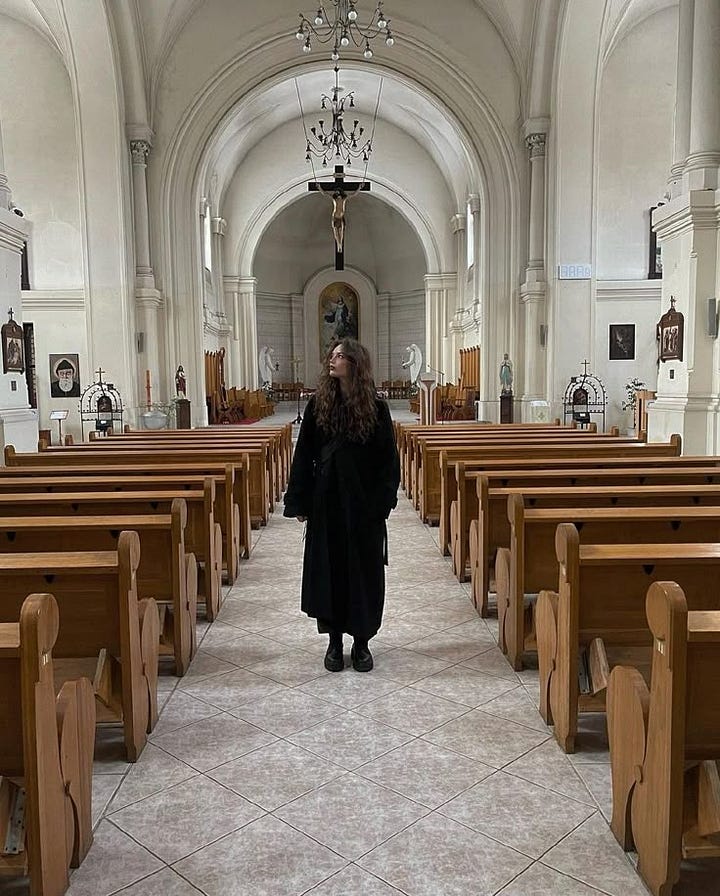
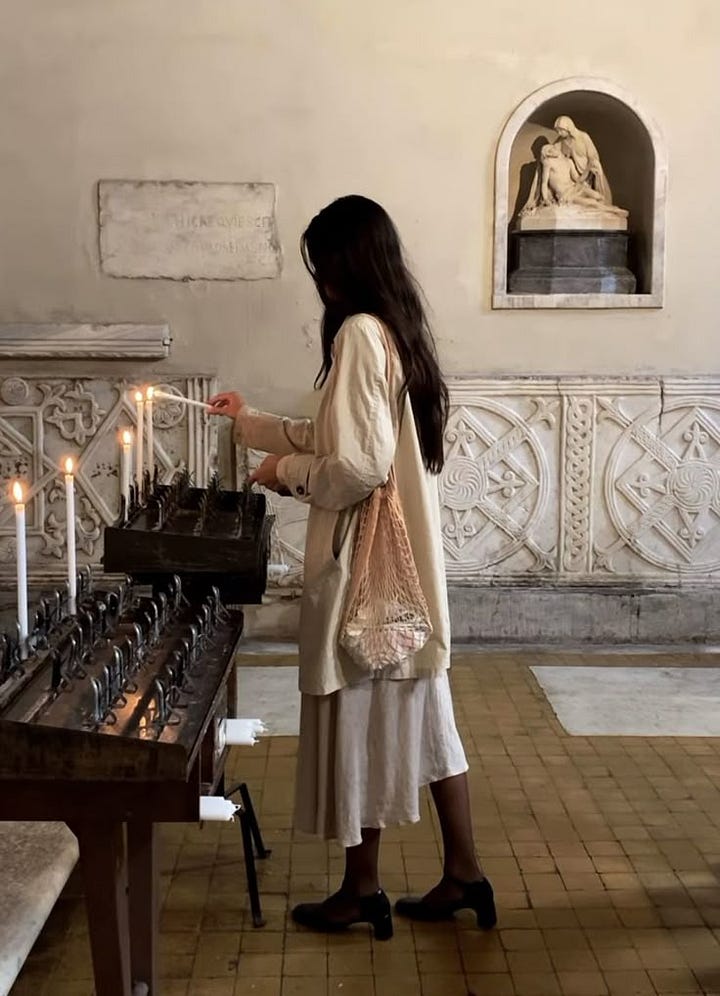
(this post is free, but if you enjoy this newsletter, consider becoming a paid subscriber and be part of a smaller circle where things feel a little softer, a little more personal, you’ll get early access to my youtube videos and a weekly media consumption roundup filled with articles, video essays, podcasts, and other references to make you smarter. i’d love to have you there)
we live in a time of relentless flattening. everything is immediate, searchable, simplified. information is endless, but meaning is scarce. attention is monetized, irony is armor and people are tired. not just intellectually, but spiritually.
without a shared language for reverence, people resort to improvising. they wander into old churches, collect icons, light candles. maybe not so much out of belief, but out of a need for stillness. they are not looking for religion. they are looking for rhythm and something that doesn’t sell or explain itself.
sacredness, even in fragments, still works on the body. whether it’s a gesture, a phrase or a silent room, it slows you down and sharpens your senses. it reminds you how to notice. not nostalgia, but orientation. and being somewhere without needing to justify why. that kind of attention is rare now.
what we want is not always belief, it’s texture and form. perhaps it’s a way to stand in front of what we don’t understand and stay with it anyway. devotion gives longing a shape. not so we can solve it, but so we can hold it.
and this is where literature becomes liturgical. not sacred necessarily, but serious. the right books don’t fix anything, instead they teach you how to wait and how to listen. how to live inside the questions.
in a culture that has forgotten how to carry mystery, the books we read quietly insist that we remember.
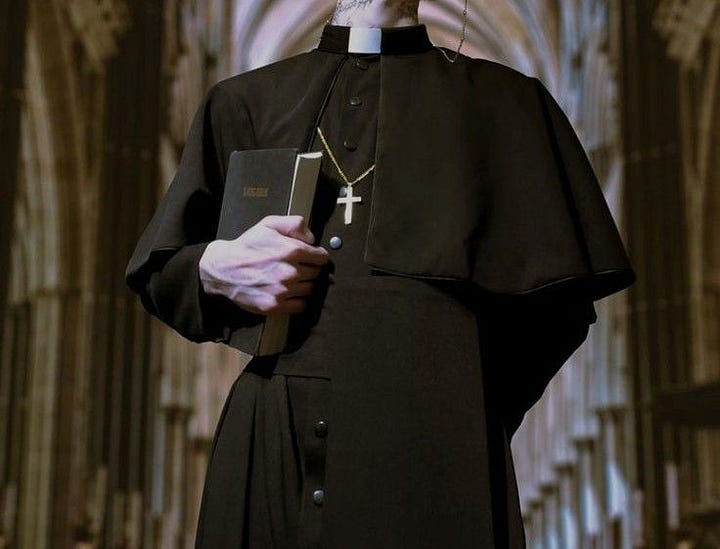

and in true milk fed fashion, i’m going to recommend some books for you to read.
these are the books i return to when i miss the feeling of god. not god himself, but the scaffolding that used to hold my attention toward something higher. not the certainty, but the seriousness. these books aren’t comforting, they’re rigorous. sometimes they require stillness and patience. they circle the divine without ever claiming to possess it, and they understand the difference between explanation and presence.
they are not answers. they are companions. and in a world obsessed with resolution, with immediacy, with knowing everything all the time, a companion is more than enough.
if this resonates with you, here are some books for the god-haunted, the spiritually restless, the quietly curious:
the nun by denis diderot
what starts as a story about a girl forced into a convent becomes a brutal, claustrophobic portrait of power, coercion, and religious hysteria. the nun ends up exposing how blind devotion can become indistinguishable from violence. our protagonist, suzanne, is passed between convents like a prisoner, subjected to mental, physical, and sexual abuse, all under the guise of piety. it’s part gothic horror, part philosophical critique, and entirely god-haunted.
the monk by matthew lewis
this book is batshit in the best way. written by a 19 year old in 1796, the monk follows ambrosio, a highly respected clergyman whose spiritual pride and lust spiral into total moral collapse. we’re talking demonic seduction, cross-dressing, incest, murder, and a full-blown deal with the devil. it’s campy, decadent, and deeply anti-clerical, but underneath all the gothic spectacle is a serious meditation on repression, power, and the thin line between holiness and hubris.
confessions by saint augustine
part autobiography, part philosophical treatise, part prayer. confessions is augustine’s attempt to make sense of his life: his past sins, his search for meaning, his ultimate turn toward god. it’s astonishingly personal for something written in the 4th century. he reflects on everything from stealing pears as a teenager to the metaphysics of time. it’s a book about guilt, memory, longing, and transformation. and about how desire itself might be a path toward the divine.
interior castle by st. teresa of avila
st. teresa was a spanish mystic, nun, and spiritual powerhouse who claimed to have visions and ecstasies so intense they left her physically altered. in interior castle, she maps out the soul’s journey toward god like an architectural blueprint: seven mansions, each representing a stage of spiritual development. it’s abstract, visionary, and deeply feminine in its spirituality, full of surrender, intimacy, and a kind of holy ache. for teresa, god isn’t just a father or judge; he’s a lover, and this book is the slow, trembling approach toward him.
from sickness unto death by søren kierkegaard
this is kierkegaard at his most existential. he defines despair not as sadness, but as a kind of spiritual misalignment, being unable or unwilling to become your true self in relation to god. it’s dense, yes, but underneath the theology is something deeply relatable: the fear of not being enough, or worse, being nothing at all. kierkegaard’s solution isn’t self-help or optimism. it’s faith: raw, inward, trembling faith. not because it's comforting, but because it's the only thing strong enough to hold the weight of despair.
city of god by saint augustine
written as rome was falling, city of god is a massive, sweeping work of theology and philosophy trying to answer a terrifying question: what happens when the world you know collapses? augustine contrasts the earthly city, political, corrupt, fleeting, with the heavenly city, which is ordered by god and eternal. it’s not a comforting book, but it’s strangely stabilizing. it offers a way to think about faith and permanence in a world that’s always shifting. empire crumbles; the soul endures.
selected writings by thomas aquinas
aquinas is the philosopher-priest who tried to prove that faith and reason aren’t enemies. his work is structured like a legal argument, question, objection, response, but beneath the method is a desire to understand god in a way that holds up under pressure. his writings cover everything from the existence of god to the nature of the soul to what makes an act morally good. reading him feels like walking into a cathedral built out of logic, intimidating at first, but awe-inspiring once you let yourself be still inside it.
waiting for god by simone weil
simone weil is not here to comfort you. these essays and letters were written during the last years of her short, intense life, and they read like dispatches from a woman who has been cracked open by suffering and is still somehow lucid. she writes about attention as a form of prayer, about affliction as a gateway to grace, about god as something you long for without ever fully reaching. she famously never converted to catholicism, believing it would cheapen the truth she was trying to touch. instead, she stood just outside the door, head bowed, waiting.
these books are not here to convert you. they're here to sit with you. to hold space for the doubt, the ache, the curiosity. they’re not about answers. they’re about the weight of the question itself.
and maybe, in a world like this, that’s enough.
fragrance, too, has become a kind of ritual. scent is one of the last places where mystery still lingers. it resists language,lives in memory, marks time in ways that are personal and invisible. and when you are someone who was raised inside the church, and has tried and failed and tried again to name your relationship to belief, certain smells undo you.
the scent of incense will always mean something. not because it is nostalgic, but because it bypasses the intellect entirely. it belongs to the body. it reminds you how to stand still, how to enter a room quietly, how to become aware of your breath. and when paired with notes of wood, stone, resin, pepper, dust, and smoke, fragrance can become a kind of private liturgy.
here are some fragrances that feel like watching white smoke rise from a chimney in rome. like wandering into an empty cathedral on a weekday afternoon, like relics and repetition, like beauty bound to structure, like the ache of tradition.
passage d’enfer extrême by l’artisan parfumeur
cool, smoky incense softened by lilies and warm vanilla. it smells like someone who prays out of habit but doesn’t know if they believe anymore. elegant and ghostly.
avignon by comme des garçons
pure, heavy church incense layered over soft woods and faint sweetness. this is not metaphorical religion. this is an old cathedral. stone floors. silence so thick it echoes.
l’orpheline by serge lutens
ashen, mineral incense paired with dry musk. sparse and melancholy. it feels monastic, but intimate. like being the last person left in the chapel.
encens by alkemia perfumes
straight incense. nothing more, nothing less. this is candle smoke in cold air. the purest distillation of ritual.
relique d’amour by oriza l. legrand
resinous, green, powdery. pine needles, lilies, and myrrh. it smells like antique wood, damp stone, a forgotten reliquary. old faith, quietly fermenting.
encens suave by matière première
coffee and incense laced with warm vanilla and labdanum. think early morning mass followed by strong espresso in silence. smoke curling over a ceramic cup.
heresy by chapel factory
sharp incense and black pepper, grounded by dry wood. smells like penance. or defiance dressed as devotion.
holy stick by chapel factory
this one burns a little brighter. cloves, elemi, cedar, palo santo, amber. it’s ritual fire. a prayer that crackles.
mortel by trudon
black pepper, myrrh, and resins over charred wood. intense and physical. the kind of scent that lingers in a confession booth.
portrait of a lady by frédéric malle
rose and incense braided with berries and spice. opulent, sensual, tragic. this is mary magdalene at a funeral wearing red lipstick.
female christ by 19-69
earthy, medicinal, provocative. patchouli, eucalyptus, rhubarb, and wintergreen. it smells like blasphemy spoken tenderly. like belief pulled apart and held in pieces.
if you’re curious about sampling you can use my link at scent split for a discount on all samples and full size bottles
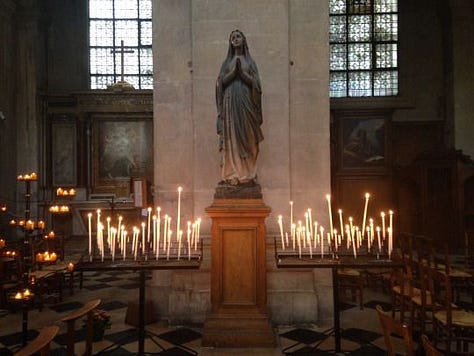
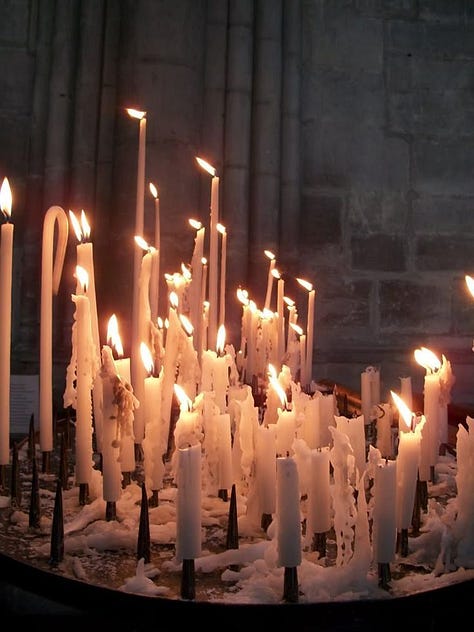
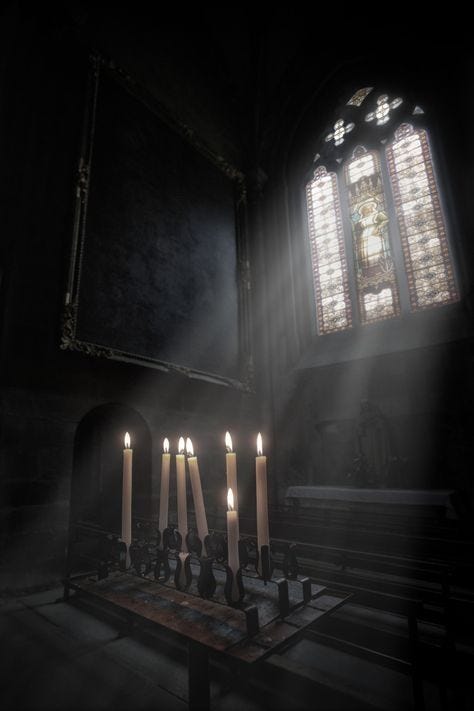
okay, that’s all for today.
if you’re not ready to become a paid subscriber and you have the capacity to leave a tip, that would be so appreciated.
i love you.
bye.
(follow ig, tiktok, youtube, pinterest and spotify for more)






Lovely coincidence that you chose two books by Saint Augustine and the new pope is a follower of his teachings.
brilliant as always and a great way to express how many of us are feeling